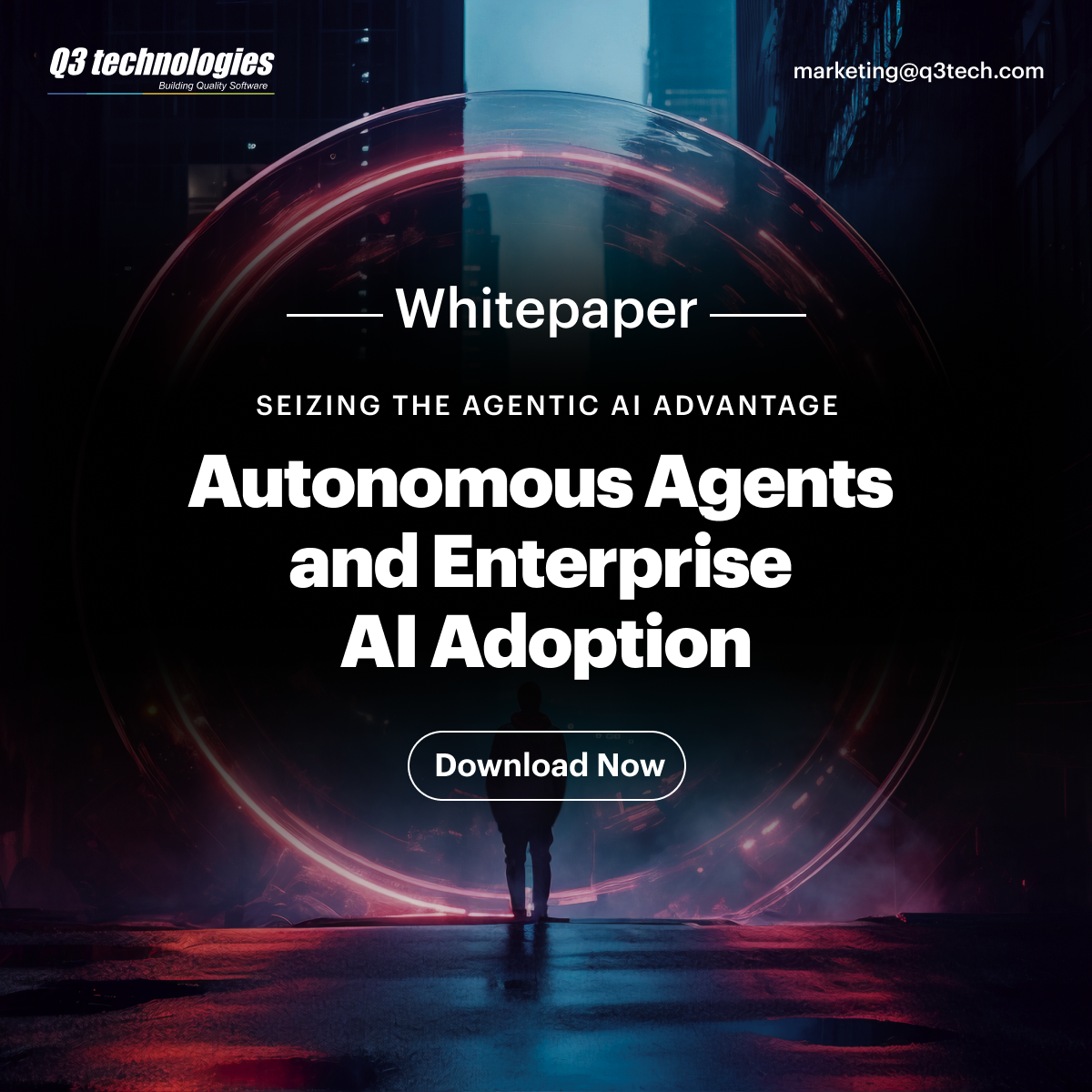Chatbots
The Ultimate Guide to The Top Benefits of Chatbots
 Updated 18 Jun 2025
Updated 18 Jun 2025

In the rapidly evolving digital landscape of 2025, chatbots for business have become indispensable tools for delivering efficient and personalised customer experiences. Juniper Research projects that global retail spending through chatbots will reach $72 billion by 2028, up from $12 billion in 2023. This remarkable growth highlights the increasing reliance on chatbot technology for business transformation and customer engagement.
Moreover, Salesforce reports that customer service agents lose about two-thirds of their workday to tasks that don’t involve directly assisting customers. By automating repetitive tasks, a chatbot development company can help organizations implement intelligent bots that allow human agents to focus on higher-value interactions, increasing productivity and overall customer satisfaction.
The Rise of AI-Powered Conversational Interfaces
The integration of AI technologies like NLP (Natural Language Processing) and machine learning has significantly advanced chatbot functionality. These smart bots can now understand user intent, handle nuanced conversations, and improve their responses over time. This evolution enables businesses to provide more intelligent and context-aware customer interactions.
Types of Chatbots: Rule-Based vs AI-Based
Rule-based chatbots operate using preset scripts and decision trees. They are ideal for answering simple, structured queries where user input is predictable.
AI-based chatbots utilise machine learning and NLP to adapt to user inputs, enabling them to handle complex questions and provide personalized responses. They improve over time by learning from past interactions.
Why Chatbots Matter in Today’s Digital Landscape
Today’s customers demand instant gratification and real-time support. Chatbots help meet these expectations by offering always-on communication and fast resolutions. This enhances the overall user experience and helps businesses stay competitive in a digital-first world.
The Shift Toward Instant Customer Engagement
With consumers expecting instant replies, chatbots serve as the first point of contact across digital platforms. They ensure that inquiries are acknowledged and addressed immediately, improving engagement rates. This immediacy builds trust and keeps customers coming back.
The Role of Chatbots in Digital Transformation
Chatbots are key drivers of digital transformation initiatives across industries. They automate low-value, high-volume tasks and improve interaction quality with customers. As a result, organizations can operate more efficiently while delivering smarter and faster services.
Industries Leading the Way in Chatbot Adoption
Sectors like e-commerce, banking, healthcare, education, and travel have been early adopters of chatbot technology. These industries use chatbots to streamline customer service, manage inquiries, and enhance user engagement. Their success stories are encouraging other sectors to follow suit.
Ready to Transform Your Operations with RL?
Discover how the advantages of reinforcement learning can revolutionize your industry.
Top 15 Benefits of Chatbots for Businesses
- 24/7 Customer Support Availability: Chatbots provide round-the-clock assistance, ensuring customers can get help anytime. This improves user satisfaction and reduces the pressure on human support agents.
- Cost Reduction and Operational Efficiency: Chatbots handle repetitive queries, reducing the need for large customer support teams. This leads to substantial cost savings and operational optimization.
- Enhanced Lead Generation and Qualification: Chatbots engage website visitors in real-time, gather user data, and qualify leads automatically. This streamlines the sales funnel and improves conversion rates.
- Personalized Customer Experiences at Scale: With access to customer preferences and interaction history, chatbots can deliver tailored responses. This personalization increases customer satisfaction and brand loyalty.
- Instant Response and Improved Customer Satisfaction: Chatbots respond instantly to user queries, eliminating wait times. Fast support improves user experience and leads to higher retention rates.
- Increased Customer Engagement and Retention: Chatbots initiate conversations, send reminders, and follow up on interactions. This proactive approach keeps customers engaged and encourages long-term relationships.
- Multilingual Support for Global Reach: AI chatbots can communicate in multiple languages, enabling businesses to serve a diverse global customer base. This expands market reach without added staffing costs.
- Automation of Repetitive Tasks: Chatbots can automate tasks like FAQs, order tracking, and scheduling. This allows employees to focus on strategic and creative work.
- Improved Internal Operations and HR Support: Internal chatbots assist employees with HR tasks such as leave requests and onboarding. This improves workplace efficiency and employee experience.
- Seamless Integration with CRMs and Support Tools: Chatbots can sync with CRM systems and helpdesk platforms to streamline customer data management. This ensures consistent communication and efficient resolution.
- Data Collection and Real-Time Insights: Chatbots collect user behavior data and feedback during conversations. This data helps businesses make informed decisions and improve products or services.
- Scalability Without Additional Headcount: As user volume increases, chatbots can scale up their interactions without requiring more staff. This is especially useful during peak seasons or product launches.
- Reduced Human Errors in Customer Service: Automated responses reduce the chances of inconsistent or incorrect information. This ensures a more reliable and professional support experience.
- Driving Sales Through Conversational Commerce: Chatbots guide users through product discovery, answer questions, and facilitate checkout. This simplifies the shopping journey and boosts conversions.
- Supporting Omnichannel Communication Strategy: Chatbots provide a consistent experience across websites, social media, and apps. This ensures brand coherence and seamless interaction.
Benefits of Chatbots Across Different Industries
- eCommerce and Retail: Chatbots assist with product recommendations, order updates, and handling returns, improving the overall shopping experience.
- Healthcare and Telemedicine: Chatbots schedule appointments, provide medication reminders, and offer preliminary symptom assessments to patients.
- Banking and Financial Services: They manage account queries, send transaction alerts, and guide users through banking services securely.
- Travel and Hospitality: Chatbots help with bookings, provide travel updates, and assist customers during their journey, improving satisfaction.
- Education and eLearning: They support students by answering queries, sharing course content, and assisting with enrollment processes.
- Real Estate and Property Management: Chatbots manage property listings, schedule viewings, and answer questions, saving time for agents and clients.
How AI Enhances Chatbot Capabilities
Natural Language Processing (NLP)
Natural Language Processing (NLP) empowers chatbots for business to understand, interpret, and respond to user queries in a conversational tone. This capability allows bots to detect context, sentiment, and intent, making interactions more human-like. NLP also helps chatbots handle slang, misspellings, and regional nuances.
Sentiment Analysis and Predictive Responses
Sentiment analysis enables chatbots to assess a user’s emotional tone and tailor responses accordingly. Combined with predictive analytics, chatbots can anticipate user needs and offer proactive solutions. This makes interactions more empathetic and efficient, enhancing the benefits of chatbot use.
Self-Learning and Continuous Improvement
AI-powered chatbots learn from every interaction, improving their accuracy and responses over time. This self-learning ability ensures that bots evolve with user behavior and business needs. It helps organizations deliver consistent and increasingly intelligent support.
AI Chatbots vs Rule-Based Bots: A Comparison
Rule-based bots follow predefined paths and scripts, offering limited responses. In contrast, AI chatbots use machine learning and NLP to understand and adapt to user input dynamically. This flexibility allows AI bots to manage complex queries and improve with experience.
Ready to Transform Your Operations with RL?
Discover how the advantages of reinforcement learning can revolutionize your industry.
Common Challenges Businesses Face Without Chatbots
Delayed Customer Responses
Without chatbots, businesses struggle with long response times due to limited staff availability. This delay leads to customer frustration and churn. Real-time interactions enabled by chatbots solve this issue efficiently.
High Operational Costs for Support Teams
Manual customer support is resource-intensive, requiring large teams and higher costs. Chatbots reduce the need for a large support staff while handling high volumes of queries cost-effectively.
Missed Sales Opportunities Due to Slow Lead Follow-up
When leads aren’t engaged instantly, businesses miss valuable sales opportunities. Chatbots for business engage prospects immediately, qualify them, and direct them to the sales team.
Inefficient Workflow Automation
Businesses without chatbots often depend on manual processes, slowing down productivity. Benefits of chatbots include automating repetitive tasks, improving internal workflows, and allowing teams to focus on strategic tasks.
Key Statistics That Prove Chatbot Benefits
Customer Preference Trends
According to Salesforce, 69% of consumers prefer chatbots for quick communication with brands. This shows growing customer comfort with AI-powered conversations.
Impact on Conversion Rates and ROI
IBM reports that chatbots can reduce customer service costs by up to 30% while increasing lead conversion by 25–40%. This highlights the ROI potential of chatbot benefits.
Case Studies and Success Metrics
H&M, a global retailer, saw a 70% increase in customer satisfaction scores after implementing chatbots. Domino’s uses chatbots to process over 60% of its online orders, improving efficiency and order accuracy.
How to Get Started with Chatbots
Choosing the Right Chatbot Development Partner
Selecting an experienced chatbot development partner ensures a solution tailored to your business needs. Look for firms with proven AI, NLP, and industry experience.
Key Features to Look for in a Chatbot Platform
Essential features include multi-platform support, easy integration with CRMs, analytics dashboards, and NLP capabilities. These features maximize the benefits of chatbot use.
Custom vs Prebuilt Chatbots: Which Is Better?
Custom chatbots offer flexibility and tailored features but take longer to develop. Prebuilt solutions are faster and cost-effective but offer limited customization. Your choice depends on business goals and timelines.
Tips for a Successful Chatbot Implementation
Start small with a clear use case, monitor performance regularly, and iterate based on feedback. Ensure your chatbot reflects your brand voice and integrates well with existing systems.
Ready to Transform Your Operations with RL?
Discover how the advantages of reinforcement learning can revolutionize your industry.
Future of Chatbots: Trends to Watch in 2025 and Beyond
Voice-Powered Chatbots
Voice-enabled chatbots will dominate customer service in 2025, providing hands-free support and faster interactions. This trend is especially useful for mobile-first and accessibility-focused services.
Hyper-Personalized AI Assistants
AI chatbots will offer more personalized experiences by leveraging user data, behavior, and preferences. This enhances customer satisfaction and loyalty.
Integration with AR/VR and IoT
Future chatbots will integrate with AR/VR for immersive experiences and with IoT devices for real-time control. This adds another dimension to user engagement and automation.
Emotionally Intelligent Chatbots
Emotionally aware bots will adapt tone and language based on user emotions, delivering empathetic responses. This will redefine user experience across industries.
Why Q3 Technologies Is Your Ideal Chatbot Development Partner
End-to-End Chatbot Development Services
Q3 Technologies offers comprehensive services from strategy to deployment and support. We develop intelligent, scalable, and user-friendly chatbots for business.
Experience with AI, NLP, and ML Integration
Our team integrates AI, NLP, and machine learning to build advanced conversational interfaces. This ensures your chatbot is intelligent, adaptive, and future-ready.
Industry-Specific Chatbot Solutions
We tailor our chatbot solutions to suit diverse industries, including healthcare, retail, finance, and more. This ensures your business gets relevant and effective automation tools.
Proven Track Record with Global Clients
Q3 Technologies has delivered high-performing chatbot solutions to clients worldwide. Our success stories speak for our quality, innovation, and commitment.
Conclusion
The benefits of chatbots are undeniable, from cost savings to better engagement. They streamline operations, improve customer experience, and support growth. As customer expectations evolve, embracing chatbots for business is no longer optional. It’s a strategic move to stay competitive, scalable, and customer-focused in the digital age.
FAQs
Are chatbots suitable for small businesses?
Yes, chatbots are highly suitable for small businesses. They provide cost-effective customer support, automate repetitive tasks, and help small teams deliver 24/7 service without needing a large support staff.
How secure are chatbot interactions?
Chatbot interactions are generally secure when built with proper encryption, authentication, and data privacy measures. Reputable chatbot solutions comply with industry standards to protect user data and ensure confidentiality.
Can chatbots replace human agents?
Chatbots are designed to complement human agents, not fully replace them. They handle routine queries efficiently, freeing up human agents to focus on complex, high-value tasks requiring empathy and critical thinking.
What ROI can companies expect from chatbot investments?
Companies can expect significant ROI, including up to 30% reduction in customer service costs and 25–40% increase in lead conversions. Chatbots improve operational efficiency, customer satisfaction, and revenue generation over time.
Table of content
- Why Chatbots Matter in Today’s Digital Landscape
- Top 15 Benefits of Chatbots for Businesses
- Benefits of Chatbots Across Different Industries
- How AI Enhances Chatbot Capabilities
- Common Challenges Businesses Face Without Chatbots
- Key Statistics That Prove Chatbot Benefits
- How to Get Started with Chatbots
- Future of Chatbots: Trends to Watch in 2025 and Beyond
- Why Q3 Technologies Is Your Ideal Chatbot Development Partner
- FAQs

Explore More

Mobile Applications

